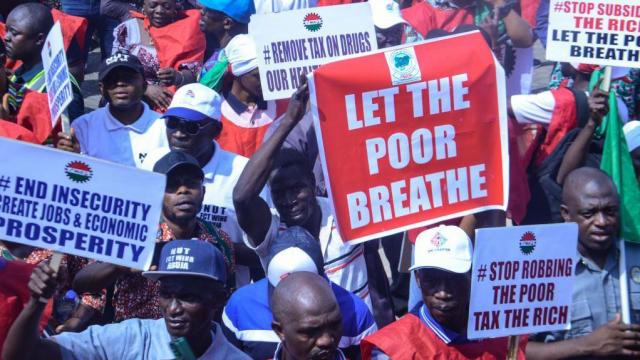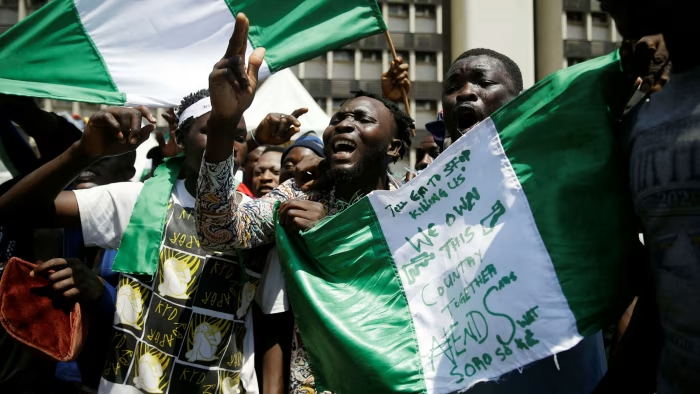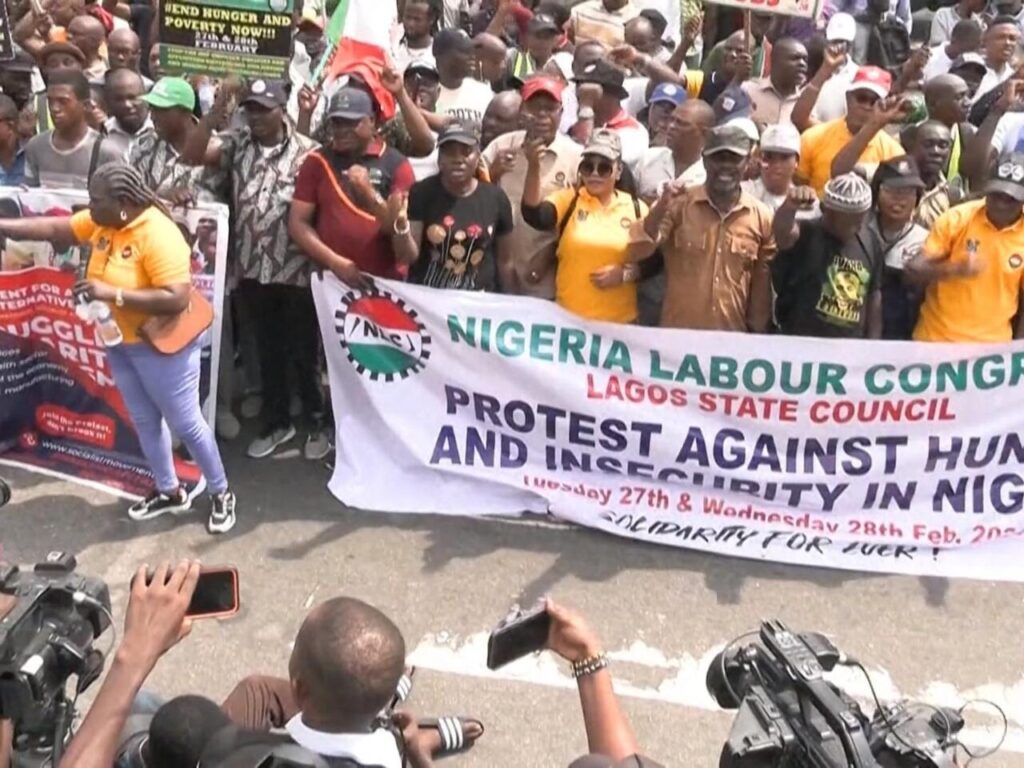Nigerians are preparing for 10 days of protests starting Thursday, driven by mounting economic hardships and soaring inflation rates. The demonstrations, organized by groups such as the Take It Back Movement, come despite government pleas to stand down.
Banwo Olagokun, a 36-year-old activist with the Take It Back Movement, told the BBC, “We are protesting because we are hungry. We are protesting because the inflation rate has made us unable to afford the simple things of life – food, water, clothes, medicals.”

Nigeria is experiencing its worst economic crisis in a generation, with annual inflation at 34.19%, the highest in almost three decades. Food prices have risen even faster, with staples like yams costing nearly four times more than last year in Lagos, the commercial hub.
The Take It Back Movement is demanding that the government address the cost-of-living crisis and offer free education at all levels. Some of their more radical demands include scrapping the country’s 1999 constitution, allowing Nigerians living abroad to vote in elections, and releasing Biafran separatist leader Nnamdi Kanu from prison.
Juwon Sanyaolu, the 31-year-old national coordinator of the movement, says they have drawn inspiration from recent events in Kenya, where youth-initiated demonstrations forced President William Ruto to scrap a controversial tax-rise plan.
The planned protests have prompted a response from the Nigerian government. President Bola Tinubu, through Information Minister Mohammed Idris Malagi, has appealed to organizers to shelve their plans and urged patience. Several state governors have also spoken out, warning of potential violence.
In an apparent attempt to appease the public, the government has made various announcements, including reopening applications for youth financial support and advertising job opportunities at the state oil company.

However, protest organizers say these offers are insufficient. Sanyaolu states, “We have not put our boots on the ground and already the government is granting concessions and advertising jobs here and there. If young people insist and put their boots on the ground, we’ll get more.”
Nigeria’s economic difficulties stem from several factors, including the devaluation of the naira, removal of fuel subsidies, and ongoing security crises affecting supply chains.
The government insists the reforms were necessary to reduce public spending, a view shared by economist Muda Yusuf. However, Yusuf believes the implementation could have been better planned.

Some fear the demonstrations could lead to a repeat of the 2020 #EndSars protests, which ended in violence. Defence spokesman Maj Gen Edward Buba has warned that the military will intervene to prevent any violence, while police chief Kayode Egbetokun blamed “self-appointed crusaders and influencers” for organizing the protests.
Despite these warnings, organizers remain resolute. Sanyaolu declares, “I’m not a prophet, as I like to say, but one thing I can assure is Nigerians are resolute and we will protest.”
As Nigeria braces for potential unrest, the coming days will test the government’s ability to address the economic concerns of its citizens while maintaining public order.
Source: BBC



